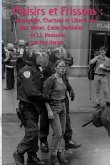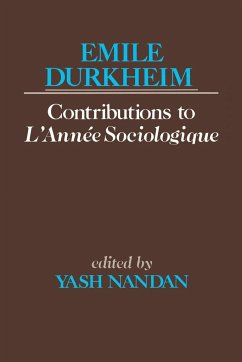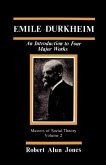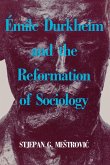Max Weber, Emile Durkheim and J.J. Rousseau were important social philosophers and scientists. Their work remains relevant to today. Through three essays the author explores their relevance in a post-modern cyber world. Excellent for the student. Discussion centres around charisma, coercion, domination and the social contract. Demagoguery plays an important role in human history as does resistance to pain. We are fascinated by the charisma of individuals and the events that lead up to their acceptance and the barriers that obstruct their path. It is especially interesting to deal with the subject in light of the current world climate. To this end I have broken down the study of charisma into seven categories: Domination and Education; Domination and Rational Economics; Deindividuation As A Threat; Media; The Environment; Style; and Deviance. Definitions of the state, freedom, property, law, and what constitutes consensus are vital to the formation of any society. Even if the law is unreasonable, the people divided into slave camps, all property belonging to the King, and the state one of heavy handed coercion, as long as all these elements are known beforehand and part of public knowledge there will be more order than chaos. Rousseau is acutely aware that man may create any society he chooses, even one that doesn't suit him. In The Social Contract Rousseau tries to provide a set of guidelines that would go to support a society governed by that which is for the greater good and bound with strong moral duty. These essays allow me to reconsider how domination, charisma and propaganda are often part of our daily news and life. Some ancient fellows, a hundred and fifty to three hundred years old if they're a day; Weber, Durkheim and Rousseau, entered, created and manifested the science of sociology. Their tools, methods and analysis remain crisp and accurate, still capable of shaping any kind of image or resistance the builders desire - that's the thrilling part. These essays are about some of their points and how they may be used to peel back veneers within a post-modern context. What their tools discover, underscore and prop up continue to aid both unseen and visible programs. Our three ancient heroes speak with knowing deliberation to their future students and have a keen desire to provide insight and tools for the building and rebuilding of societies: how to, could you, should you? Whistle blowing leaks, the internet and media manipulation were all deftly handled with off the shelf plans long before the television was invented. We're not alone in the knowledge of how to, could you, should you? - that's the chilling part. So it's good to stay busy.
Hinweis: Dieser Artikel kann nur an eine deutsche Lieferadresse ausgeliefert werden.
Hinweis: Dieser Artikel kann nur an eine deutsche Lieferadresse ausgeliefert werden.








